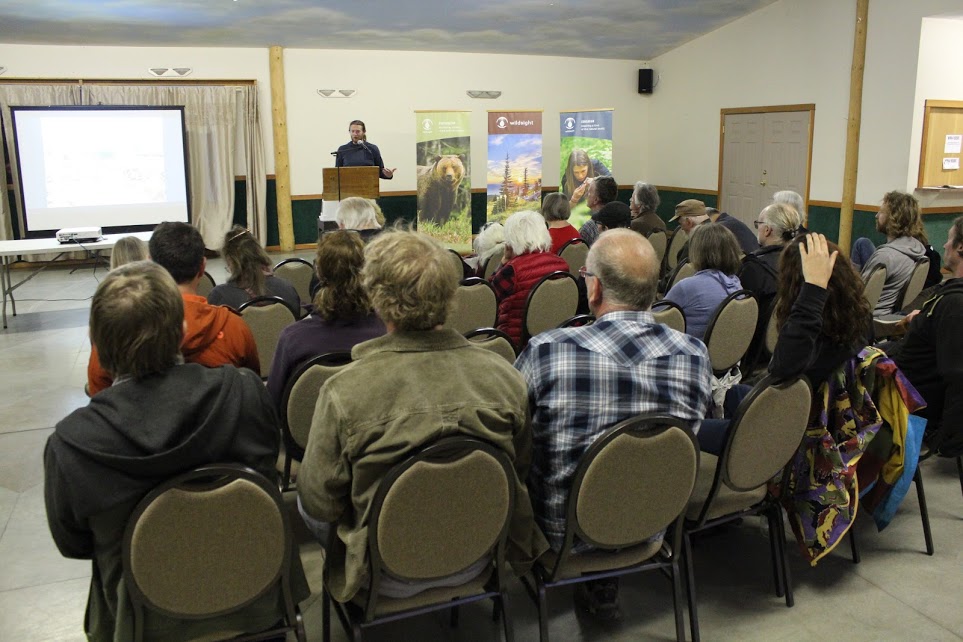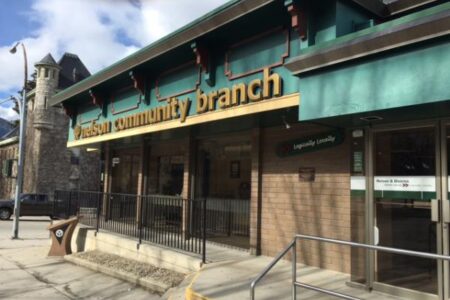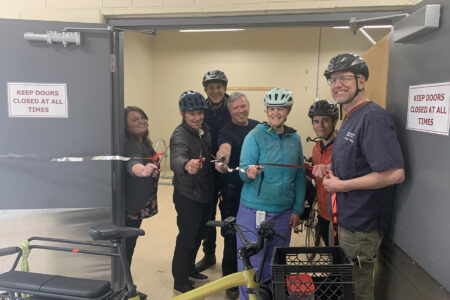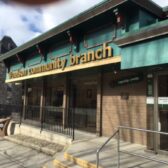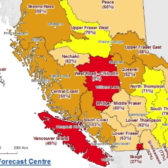Citizens voice concerns over Private Logging at Wildsight meeting
More than 40 people from various communities in the Kootenays took to the Nelson Rod and Gun Club last week for a Town Hall Meeting to express their concerns over logging on private lands.
The meeting was organized by Wildsight, an organization based in Kimberley that work to protect biodiversity and encourages sustainable communities in Canada’s Columbia and Rocky Mountain regions.
Eddie Petryshen gave an informative presentation on the private logging issues, that has become a huge concern in the southeast corner of the province, especially around Fernie, Sparwood, Creston and Elkford in the East Kootenay and Nelson and Castlegar in the West Kootenay.
“Local governments, such as the RDCK, have taken a leadership role by purchasing a portion of the Cottonwood to Apex and there have been two resolutions that have been passed by the Union of BC Municipalities to regulate private land logging, so that is huge,” said local activist and Kootenay Water Is Life Event Coordinator, Jessica Ogden, in a media release.
“However, in order to protect all our communities’ interests, the Private Managed Forest Land Act must be amended.”
Ogden said BC’s Private Managed Forest Act gives land owners a tax break for registering their land, but only includes a few regulations to protect our environment and communities.
However, there is no requirement that logging be sustainable over the long-term, meaning owners can clear-cut as much as they want in a short time, Odgen added.
“Wildlife and local communities are at risk as private land logging devastates wildlife habitats, community water sources and recreation sites,” Ogden explained.
“Regulations must be in place for sustainable forest harvesting that is in harmony with the needs of our communities, our wildlife and our future.”
The meeting also saw Jesse Woodward, Keith Page and Rik Logtenberg of Nelson City Council, Green Party Candidate Kim Charlesworth and members of the Cottonwood Lake Preservation Society attend.
Some of the other points made during the meeting include:
- Landowners of large, privately managed forests in B.C. are liquidating forests in the short-term, with minimal concern for wildlife, water, local communities or downstream landowners. Weak regulations are a threat to both the economy and the environment as forests are being managed for short-term profit instead of long-terms sustainability.
- The BC Private Managed Forest Land Act provides insufficient protection for wildlife, water, and local communities. There are no requirements for forest harvesting to be sustainable and no limit on cut for landowners. Environmental protections are lacking, with minimal stream and water protections and no requirements to maintain wildlife habitat. Landowners are not required to consider downstream values or consult with affected residents, communities, and local government.
- This is an important issue as a large portion of BC’s harvest is coming from private land. In the East Kootenay, one landownders’ harvest (Canwel) accounts for approximately one third of the total annual harvest in Cranbrook Timber Supply Area-but their privately managed forest account for only 5 per cent of the landbase. On Vancouver Island two landowners (Island Timberlands and Timberwest) own one-fifth of Vancouver Islands’ total land area-and research shows that6 privately managed forest on the Island are logged at nearly twice the industry-calculated sustainable rate (Parfitt, Ben. Restoring the Public Good on Private Forestlands. 2008. Canadian Centre for Policy Alternatives).
- In order to protect local values-such as clean drinking water, recreational infrastructure and wildlife habitat-local governments and residents are increasingly forced to buy land from private landowners. In the absence of appropriate legislation that protects water, biodiversity and long-term forest management, local governments and communities will continue to be disproportionally impacted, paying the price for weak regulations (In 2008, the Capital Regional District purchased 8,791 ha of forest land from Timberwest for $58.9 million in order to protect Victoria’s future water source. Local residents will cover the bill through special levies on their water bills. In 2019, after months of local outrage, the Regional District of Central Kootenay bought 20 ha’s of land from the Nelson Land Corporation. This land was removed from the Managed Forest program in 2017)
Goals to improving Private Managed Forest Land Act:
- Local government authority. Community and Regional Government must have the authority to introduce and enforce bylaws to protect riparian areas, sensitive habitats and community watersheds.
- Consistent and effective environment standards. We need stream and water protections, and requirements to maintain biodiversity, such as wildlife tree patches, old growth and wildlife habitat.
- Retention of managed forests. The province should reinstate The Forests Land Reserve Act (FLRA) to ensure privately managed forests remain managed forests, and are not sold for urban development.
- Cumulative effects land management.
- Independent oversight. The enforcement of legislation regarding private land harvesting should be conducted by the Ministry of Forest, Lands, Natural Resource Operations and Rural Development.
- Public consultation. Private land forest harvesting should be subject to stakeholder referral and public consultation process.



